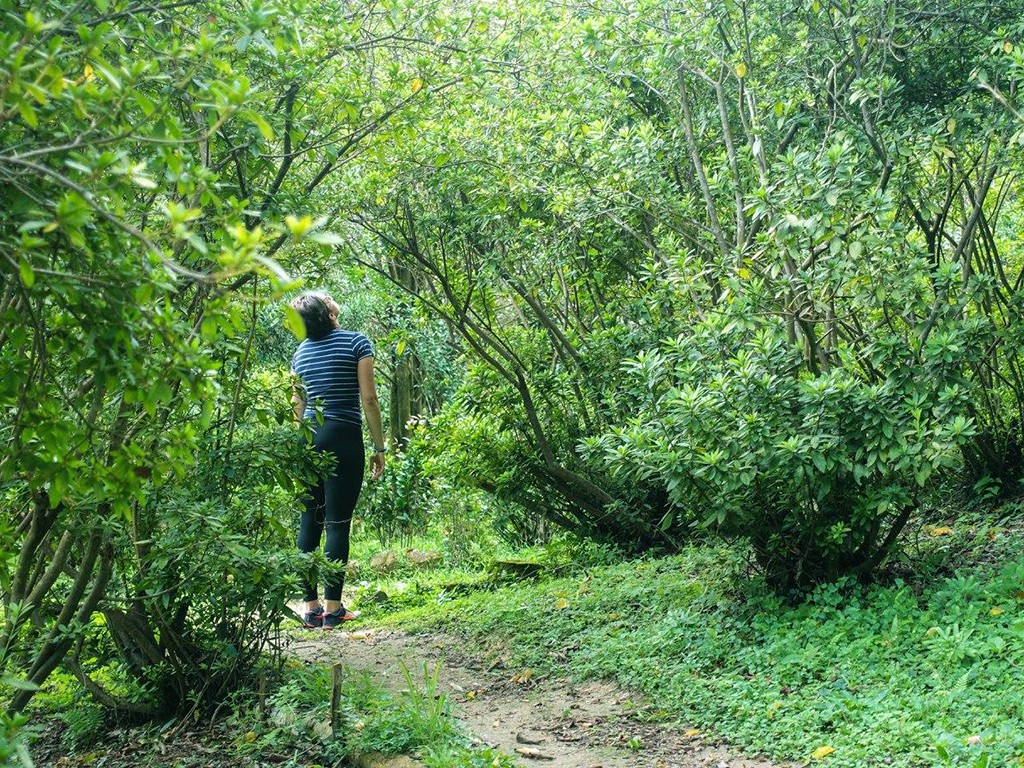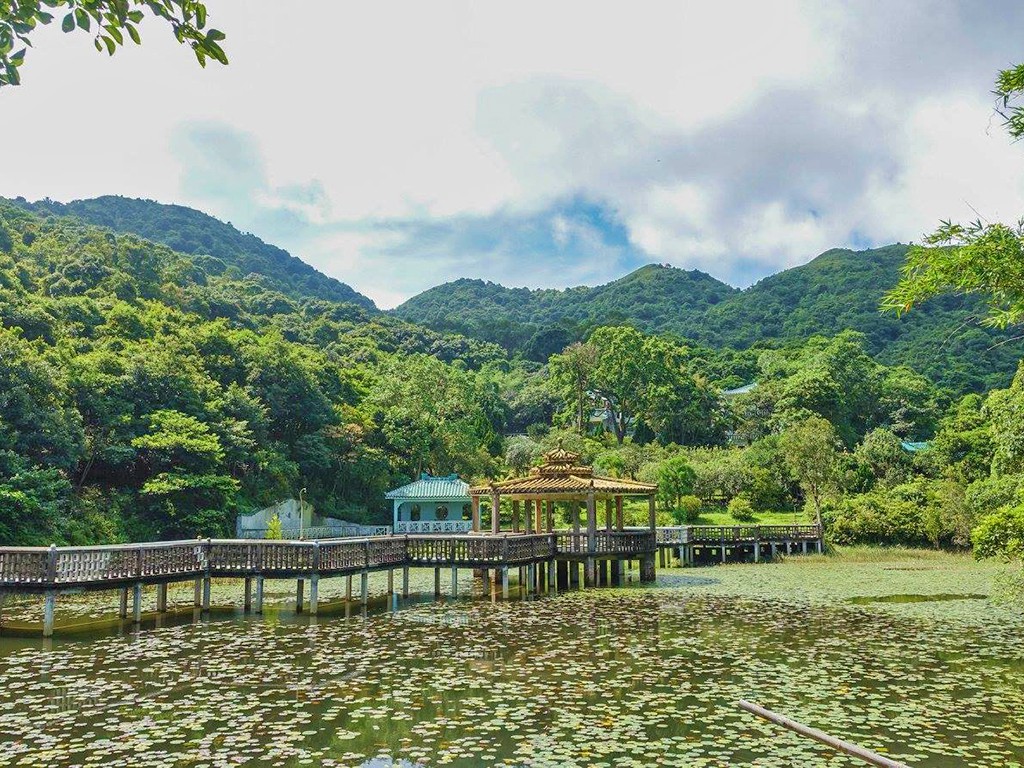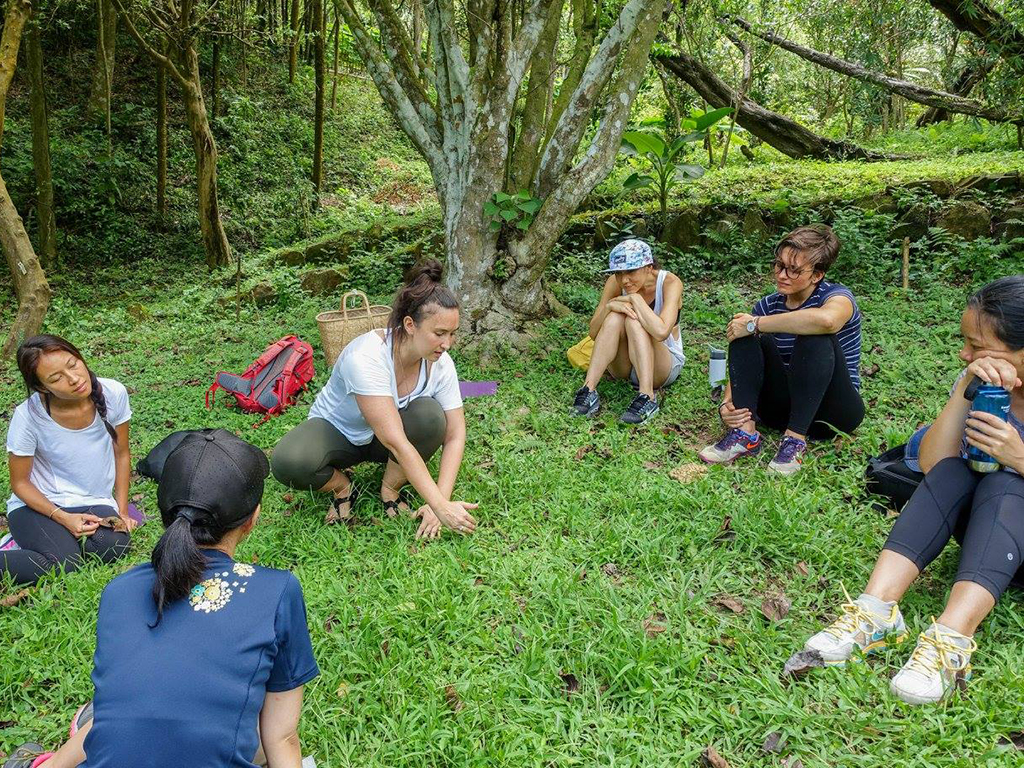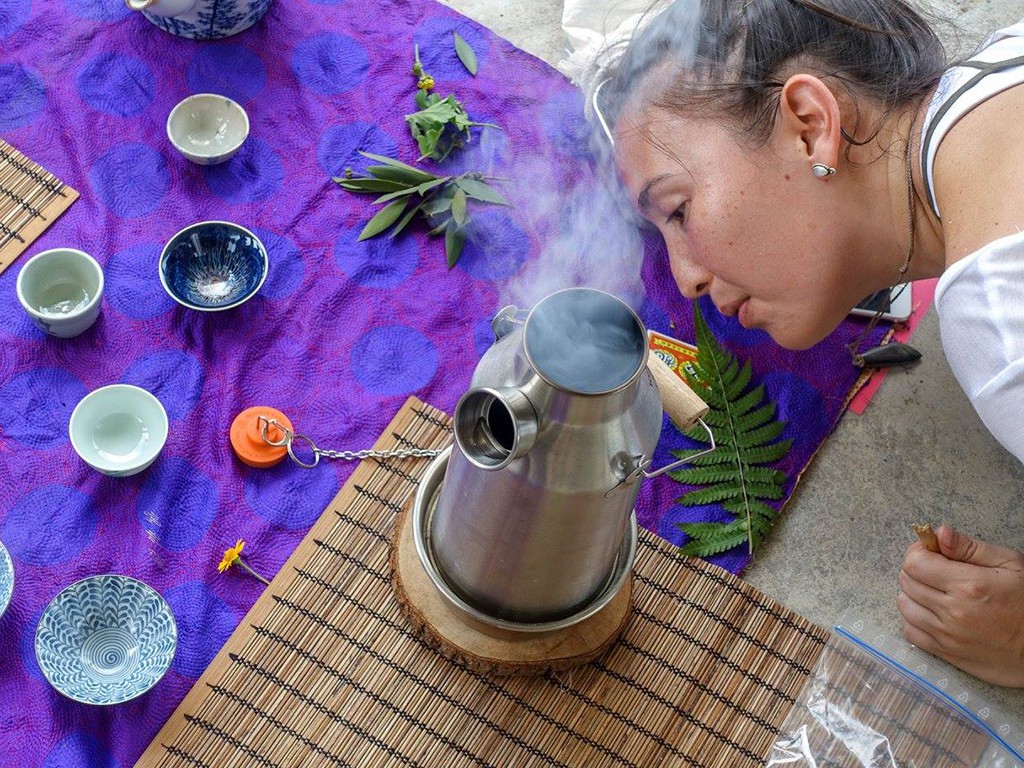6 Mins Read
Jasmine Nunns has spent her life outdoors: exploring the woods, playing freely in nature as a youth, and seeking out Mother Earth for life’s quandaries as an adult. “I would go outside whenever I had a question, when I was confused, stressed, or when I had a fight my partner,” recalls the Hong Kong native. “I would always go outside and ask whatever it was – the tree, the soil, the ocean – and there I would receive answers, whether it was in the form of an image, metaphor, or poetry.” Turns out, Nunns was unknowingly practicing Shinrin-yoku, a Japanese ritual that can loosely translate in English to ‘forest bathing.’ Fast forward a few years later and Nunns went on to receive training to become Hong Kong’s first certified Forest Therapy guide. With her diploma in hand, and with a will to bring a much needed awareness of social emotional learning and self-discovery through our natural environments, she founded Kembali last year, an organization that offers Nature and Forest Therapy Walks, combined with workshops that support emotional development and self- awareness, as well as the opportunity to reconnect and rediscover yourself.
A Childhood Reality Shared
Born and bred in the New Territories, Nunns reflects back on how fortunate she is. “I grew up running barefoot, climbing trees, rescuing every single stray animal I could possibly find,” she says with a laugh. “It’s a very different childhood to a lot of children who are growing up in Hong Kong today, where their relationship with the land is different.” Our children of today might drive past trees, but it’s quite possible they’ve never climbed one. With over half of the world’s population now living in cities, many children – and adults – suffer from what journalist and author Richard Louv calls “nature-deficit disorder,” a reduced awareness and diminished ability to find meaning in the life around us. Around the world, and especially in Hong Kong, our children’s time is heavily structured, their lives more protected as parents worry about germs and stranger danger. “I began noticing that with children and adults there was a level of apathy,” explains Jasmine. “We were throwing all sorts of statistics about empowering action, but people are just very disconnected from the impact. I wanted to provide that connection, or at least the opportunity, for that connection to happen because I know for me how important that’s been – having a sense of belonging and also feeling a part of not just the human community, but the wild community – the ecology we live in and are a part of.”
Return to Community (And How The Walks Work)
Kembali means ‘to return’ in Bahasa- the Indonesian word struck a chord with Nunn and she knew she had found the right name. “I had been looking at different languages because I couldn’t find the word in English,” she says. “There wasn’t anything that summarized what I was looking for. I was taking an educator course at The Green School in Bali and their recycling facility was called kembali. When I saw it, I knew. It’s this return to the earth, it’s a return to our true nature, and it’s a return to community. In a sense, we haven’t left, but it’s the realization of ‘I’m home, this is my place.’ And I loved that.” True to its meaning, Kembali’s Nature and Forest based therapy walks have incorporated a strong sense of community-based connection with everybody and everyone participating. Beginning with an introduction of what forest therapy is and the social, emotional, physical, and environmental benefits of forest bathing, these three-hour walks move through seamless sensory exercises. “You could almost describe it as offering mindful awareness of our surroundings in a way that maybe a lot of people haven’t experienced before,” offers Nunns. “We’re moving through each of the senses and connecting and grounding each person in the group.” From there, participants go on an uncomfortably slow walk. Living in Hong Kong, it’s common to rush and push through people on the streets, but these walks are the exact opposite. It’s understandable that a lot of people have difficulty with these walks because its unnaturally slow to them and patience is a virtue that we are fast losing.
Shared ‘Invitations’
From there, the group will move through what Jasmine calls ‘Invitations’. Unlike activities or exercises, an invitation is open for each member of the group to interpret and share however little or as much as they’d like. “A lot of people find this part quite unexpected because they often have come for their own personal natural connection reconnection and they find that they are talking to perfect strangers,” says Nunns. “For some people, it’s a bit of a challenge but part of connecting to our environment and social issues is through rebuilding our community and reconnecting is part of the culture that we need in our society. This is an integral part of our walks as well.” Returning together as a group is imperative as they will form a circle (or council) toward the end and share in various forms. At differing points of the walk, Nunns will be foraging along the trail, picking up herbs, plants and leaves to finish off the group walk with a tea ceremony. “I’ll actually serve tea as the final sensory opportunity because we’re physically taking in the forest to our bodies,” she continues. “We’ll share some snacks and wrap up the ceremony through drinking tea together.”
Return to Nature
Currently set on weekends (Saturdays, mostly) around the New Territories and on Lantau Island, Nunns’ Forest Bathing excursions are capped to a 12 group walk to offer an intimate connection with themselves, nature and others. As residents of Hong Kong are becoming aware of Kembali and its benefits, the certified life coach is looking to set up other mindful marches to meet demand. Gearing up towards open Wellness Walks on Fridays, these strolls would be framed similar to forest therapy, but would be more involved in co-counseling with a discussion or topic the group would focus on such as communication or relationships. Be on the lookout for future walks taking place on the island as well. “I haven’t run any on Hong Kong island just yet because it does tend to be busier, but there are some nice, secret spots that I’m going to be practicing later on,” she explains. Before ending our chat, I ask Nunns what her mission is for Kembali and Hong Kong. She succinctly summarizes: “My agenda, which is not a secret, is that I see what’s happening to the planet. I see the relationship between how disconnected people are with themselves and their relationship with the natural environment. My goal is to help people reconnect with nature, reconnect with themselves and reconnect with others.” And she’s right. We’ve spoken at length as to why nature has such an extreme impact on your health and research has shown that there are important positive correlations between health, happiness and nature. If we want to protect our environment, creating opportunities to reconnect with nature is crucial for both children and adults. We need to spend more time unplugged and find ways to let nature balance our lives. If children lose their love of nature, who will be the environmental guardians of the future?
The next Shinrin-yoku, Forest Bathing Guided Walk will be held October 21st, at 8:00AM in San Kung East Country Park. To sign up, click here. Programs can be customized for children and youth, corporates, families and individuals in Hong Kong. For more information on Kembali, find them on Facebook or click here.
All photos courtesy of Kembali.






